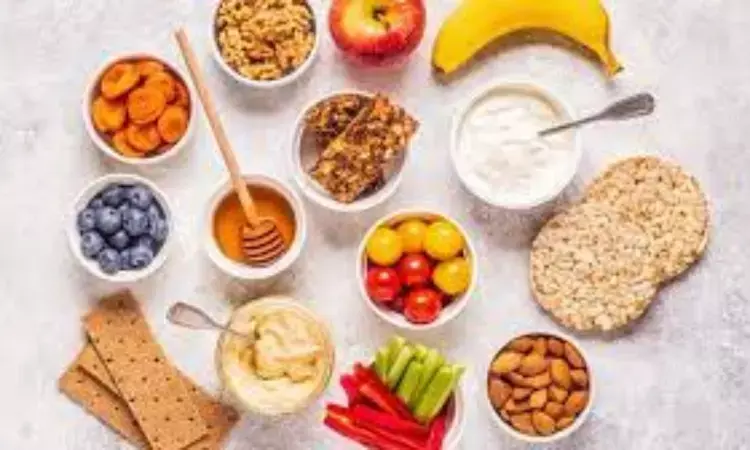- Home
- Medical news & Guidelines
- Anesthesiology
- Cardiology and CTVS
- Critical Care
- Dentistry
- Dermatology
- Diabetes and Endocrinology
- ENT
- Gastroenterology
- Medicine
- Nephrology
- Neurology
- Obstretics-Gynaecology
- Oncology
- Ophthalmology
- Orthopaedics
- Pediatrics-Neonatology
- Psychiatry
- Pulmonology
- Radiology
- Surgery
- Urology
- Laboratory Medicine
- Diet
- Nursing
- Paramedical
- Physiotherapy
- Health news
- Fact Check
- Bone Health Fact Check
- Brain Health Fact Check
- Cancer Related Fact Check
- Child Care Fact Check
- Dental and oral health fact check
- Diabetes and metabolic health fact check
- Diet and Nutrition Fact Check
- Eye and ENT Care Fact Check
- Fitness fact check
- Gut health fact check
- Heart health fact check
- Kidney health fact check
- Medical education fact check
- Men's health fact check
- Respiratory fact check
- Skin and hair care fact check
- Vaccine and Immunization fact check
- Women's health fact check
- AYUSH
- State News
- Andaman and Nicobar Islands
- Andhra Pradesh
- Arunachal Pradesh
- Assam
- Bihar
- Chandigarh
- Chattisgarh
- Dadra and Nagar Haveli
- Daman and Diu
- Delhi
- Goa
- Gujarat
- Haryana
- Himachal Pradesh
- Jammu & Kashmir
- Jharkhand
- Karnataka
- Kerala
- Ladakh
- Lakshadweep
- Madhya Pradesh
- Maharashtra
- Manipur
- Meghalaya
- Mizoram
- Nagaland
- Odisha
- Puducherry
- Punjab
- Rajasthan
- Sikkim
- Tamil Nadu
- Telangana
- Tripura
- Uttar Pradesh
- Uttrakhand
- West Bengal
- Medical Education
- Industry
Bedtime snacks tied to moderate increase in fasting blood sugar in gestational diabetes: Study

Australia: A recent study in the journal Diabetic Medicine has found that taking a bedtime snack slightly increases fasting blood sugar levels in women with diet-controlled gestational diabetes versus taking no bedtime snack.
In the study, Dorothy F. Graham, University of Western Australia, Nedlands, Western Australia, Australia, and colleagues set out to determine the effect of different bedtime snacks (higher carbohydrate versus lower carbohydrate versus no snack) on the first morning fasting blood glucose levels (BGLs) in women with diet-controlled gestational diabetes mellitus (GDM) and borderline fasting glucose levels.
For achieving their objective, the researchers designed a prospective randomized crossover trial that enrolled women with diet-controlled GDM between 24 and 34 weeks gestation who had two or more first-morning fasting BGLs between 4.7 and 5.4 mmol/L in the week prior to recruitment. They were randomly allocated to receive 6 different orders of 5 days each of a standardized higher carbohydrate bedtime snack, a lower carbohydrate bedtime snack, and no bedtime snack. The primary outcome was fasting capillary BGL as measured with a home glucometer, and the secondary outcome was a requirement for insulin as assessed by a physician.
A total of 68 women with GDM were enrolled and completed the study at a median gestation of 30.8 weeks.
Based on the study, the researchers found that compared with no bedtime snack, the higher carbohydrate snack (4.96 vs 4.87 mmol/L, mean difference: 0.09 mmol/L) and the lower carbohydrate snack (5.01 vs 4.87 mmol/L, mean difference: 0.14 mmol/L) were both associated with a slightly higher fasting BGL the following morning.
The researchers concluded that "taking a bedtime snack was associated with slightly higher fasting BGLs in women with diet-controlled GDM compared with no bedtime snack."
Reference:
The study titled, "The effect of bedtime snacks on fasting blood glucose levels in gestational diabetes mellitus," is published in the journal Diabetic Medicine.
DOI: https://onlinelibrary.wiley.com/doi/10.1111/dme.14718
Dr Kamal Kant Kohli-MBBS, DTCD- a chest specialist with more than 30 years of practice and a flair for writing clinical articles, Dr Kamal Kant Kohli joined Medical Dialogues as a Chief Editor of Medical News. Besides writing articles, as an editor, he proofreads and verifies all the medical content published on Medical Dialogues including those coming from journals, studies,medical conferences,guidelines etc. Email: drkohli@medicaldialogues.in. Contact no. 011-43720751


